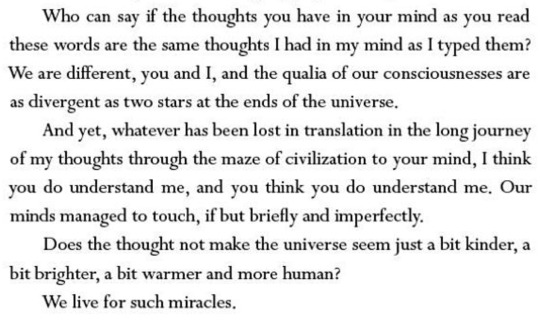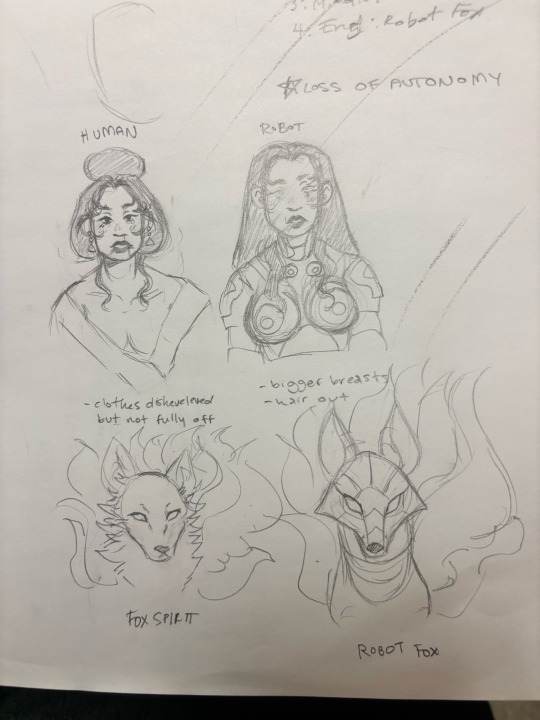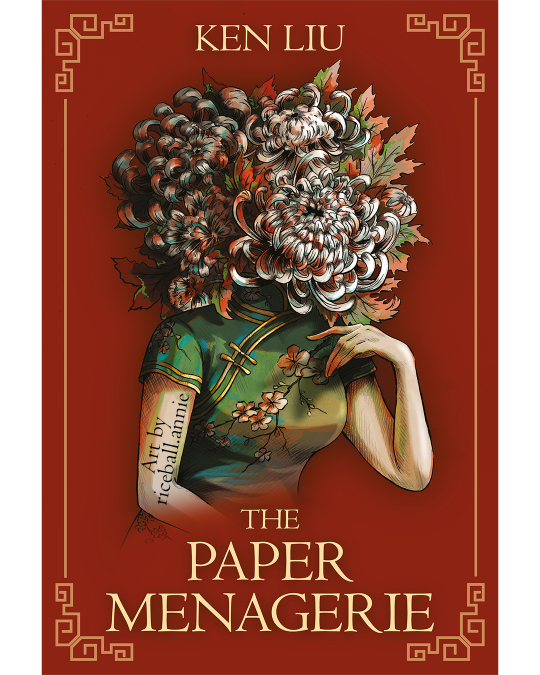#ken liu
Explore tagged Tumblr posts
Text

Ken Liu, The Paper Menagerie and Other Stories
#Ken Liu#The Paper Menagerie and Other Stories#thoughts#consciousness#understanding#miracles#universe
349 notes
·
View notes
Text



Pantheon is a comedy
64 notes
·
View notes
Text

“Vicious” “Viscous”, My Speculative Fiction MidTerm based on Ken Liu’s “Good Hunting”
rahh I’m so proud of this piece! i did an analysis explaining this piece as well for the class that I didn’t include but yea! im super proud of how it turned out and all the work i put into it. It’s a commentary on bodily autonomy. Included the sketches and up-close shots under the cut.








#good hunting#procreate#bones art 2024#love death and robots#ken liu#school project#speculative fiction#digital artist#art#cw blood#cw nudity
54 notes
·
View notes
Text

The new episode of Our Opinions Are Correct is about amazing libraries in science fiction and fantasy. We also talk about real-life libraries, which are under threat from would-be censors. Plus we talk to author Ken Liu about his new translation of the Dao De Jing!
#podcasts#our opinions are correct#science fiction#ken liu#dao de jing#fantasy#books#book culture#book review#book tumblr#booklr
42 notes
·
View notes
Text
Best Animated Series ever!
No, it's not about AI

Pantheon is an animated series, created by Craig Silverstein, based on short stories (The Hidden Girl and Other Stories) written by Ken Liu.
It discusses the greatest technological advancement in recent times, not AI but UI. Uploaded Intelligence. For if we can create intelligence, it should be possible to create infrastructure, to support uploading ourselves to the cloud.
Now, there’s a live action series “Upload”, headlined by Robbie Amell, but it deals with a world where upload is an established viable technology, not with a world dealing with its messy unplanned birth.
Best of all, being animated means we get to explore the full scope of what it would mean, how it would happen.
Share
I, myself, just finished Episode 4 of Season 2. An ending makes half the series, but I want to wait and savor this series. Like chocolate.
These are the series we should be watching out for. They fly under the radar because they spend all their money not on marketing but on story and the animation.
Every character feels like they walk and talk of their own accord, not tied down by the demands of the plot and that makes the story beautifully unpredictable. You don’t know what’s going to happen next, because the characters themselves don’t know, and you enjoy that.
It’s as good as Avatar the Last Airbender. Those who know me know that this is no faint praise.
A Quote:
“Art is inevitably political, as it must reflect the artist’s understanding of the world. However, art also isn’t mere advocacy, or a piece of propaganda.” - Ken Liu

11 notes
·
View notes
Text
I read a fantastic short story yesterday by Ken Liu called "Good Hunting," about folklore, machines, colonialism, misogyny, and finding camaraderie in survival. Enjoy.
33 notes
·
View notes
Text
I have no one to talk to about Cogo Yelu from the Dandelion Dynasty and it’s physically hurting me. He’s perfect
10 notes
·
View notes
Text
8 notes
·
View notes
Text

I love this art of Cheng Xiaoshi so, so dearly because it's adorable and I love stuffies and I love CXS but also because it reminds me of this short story: "Goodnight, Melancholy" by Xia Jia (English translation by Ken Liu)
cw: deals very intimately with deep depression, including references to suicide, but is ultimately a story that is about beginning to heal. Also, it's a story about robots, souls, and learning to be kind to yourself as you would a child.
16 notes
·
View notes
Text
The best translations into English do not, in fact, read as if they were originally written in English. The English words are arranged in such a way that the reader sees a glimpse of another culture's patterns of thinking, hears an echo of another language's rhythms and cadences, and feels a tremor of another people's gestures and movements.
— Ken Liu, translator's postscript to The Three-Body Problem, by Liu Cixin
23 notes
·
View notes
Text
Excellent Retelling of Foundation of Han Empire!

“The more perfect the ideals, the less ideal the methods.” ― Ken Liu, The Grace of Kings
Once upon a time, there was a cruel emperor who ruled over thousands and made their life miserable. A trickster rebel leader and a righteous military heir align to bring a new world order. And so, the stage is set for The Grace of Kings, a fictional, mythical retelling of the Chu-Han contention and the foundation of the Han Empire. Kevin Liu weaves a compelling, complex, page-turning narrative around the politics of a fictional warring land. But the references, characters, and all the shocking major plot points all come from historical sources - underlining that truth is indeed stranger than fiction.
Not a dull moment as we follow the fate of Kuni Garu, Jia Matiza, and Mata Zyndu as they swing between the desire to do the right thing and ambition. They love, betray, and are both kind and cruel. After all, in the real world, there are no perfect heroes.
#books#book blog#book recommendations#bookish#booklover#ken liu#grace of kings#dandelion#dandelion dynasty#kuni garu#mata zyndu
7 notes
·
View notes
Text
There are many ways to say I love you in this cold, dark, silent universe, as many as the twinkling stars.
— Ken Liu, The Paper Menagerie and Other Stories
#the paper menagerie#ken liu#quotes#literary quotes#literature#aapi#short stories#scifi#writing#books#spilled ink#thoughts#lit#pretty quotes#quote of the day#reverie#reverie quotes#quote#book quote#book quotes#inspiring quote#inspiring quotes#beautiful quote#beautiful quotes
29 notes
·
View notes
Text



Laurie Lowell I will always love you.
36 notes
·
View notes
Text

620 pages, almost as many characters to keep track of and an intricate geopolitical plot. Obvious parallels to GOT - and I really liked this!
Politics made fun 👌
63 notes
·
View notes
Text

Cried my eyes out while reading Ken Liu's #thepapermenagerie for my university's book cover project. I combined traditional inking, graphite pencils and digital colouring :3
#ken liu#the paper menagerie#booklr#book cover#book illustration#illustration#art student#ink#inking#graphite pencil drawing#digital art#digital illustration
19 notes
·
View notes